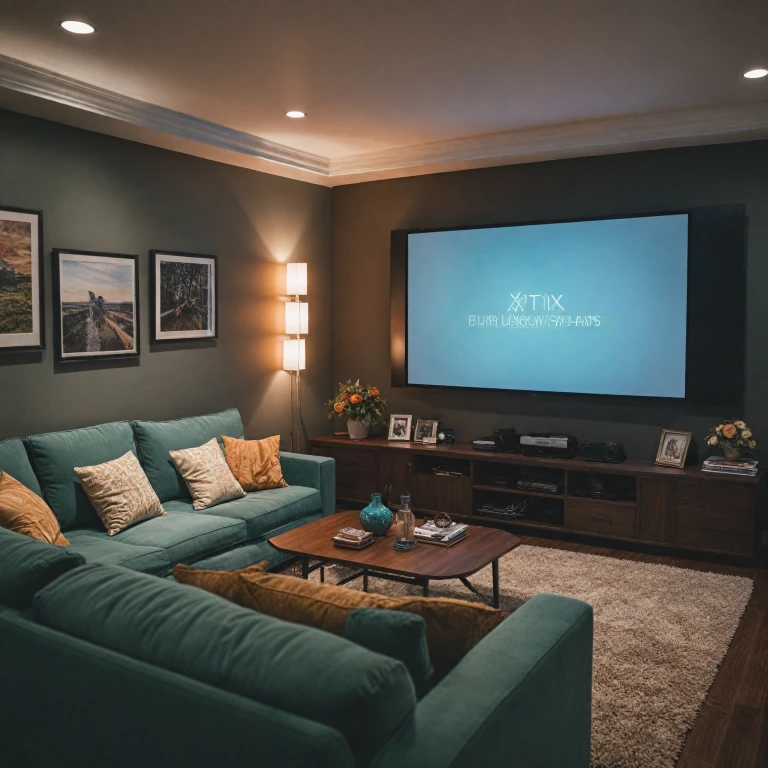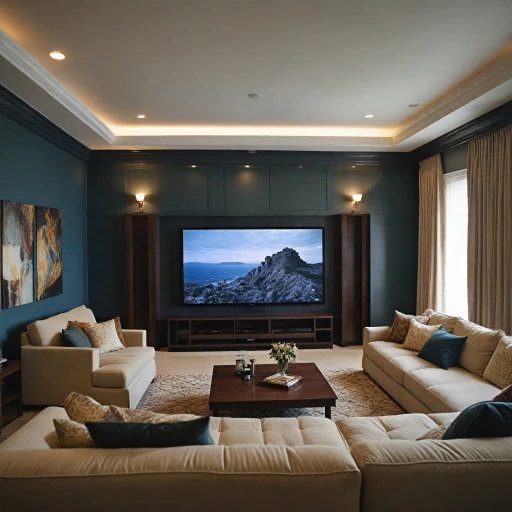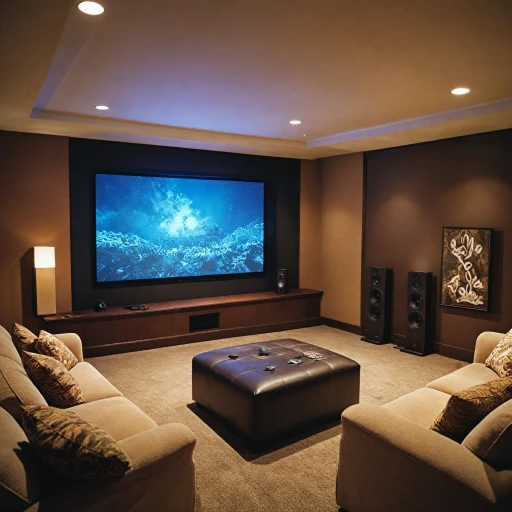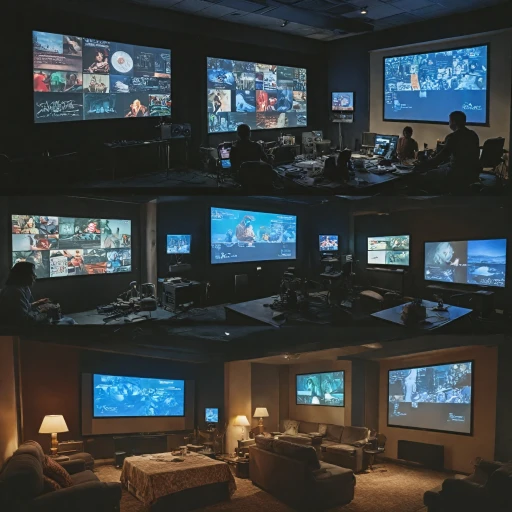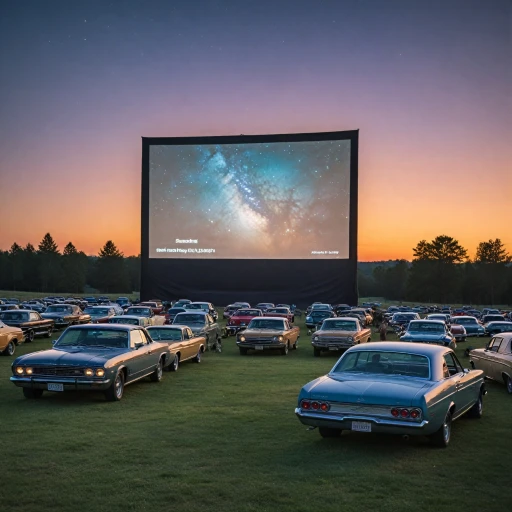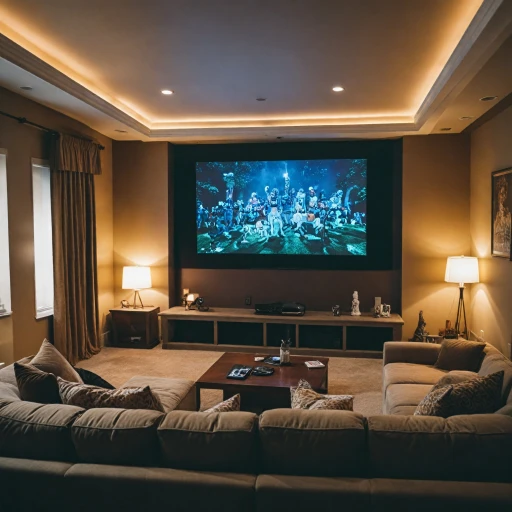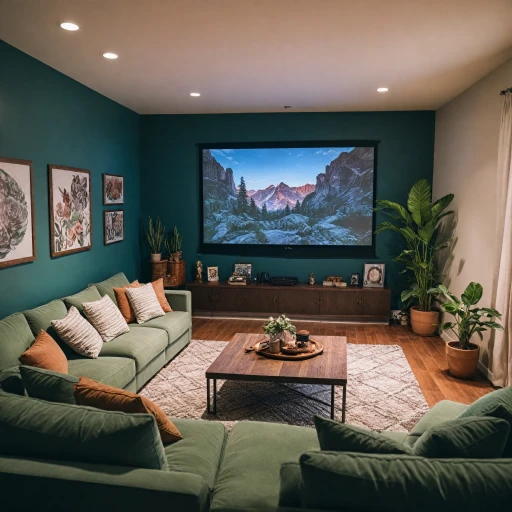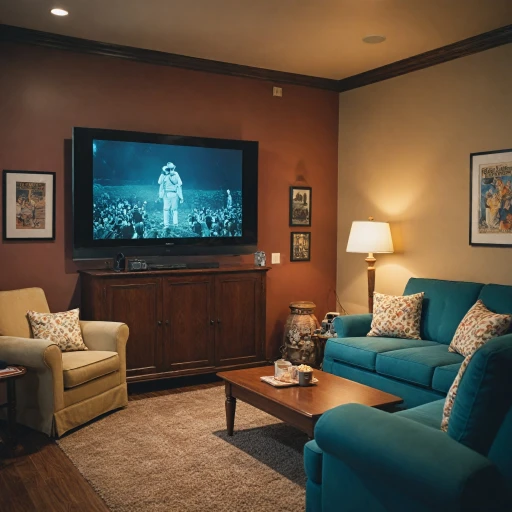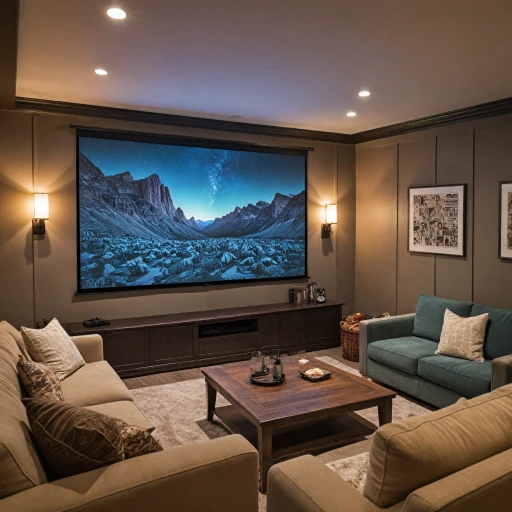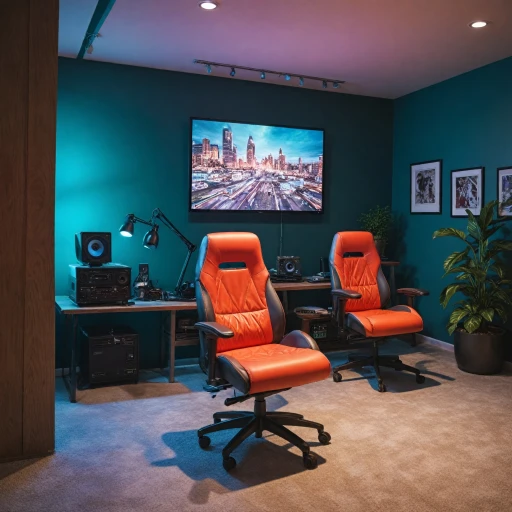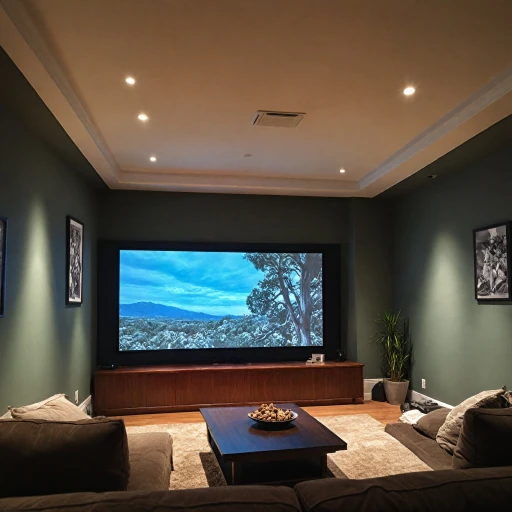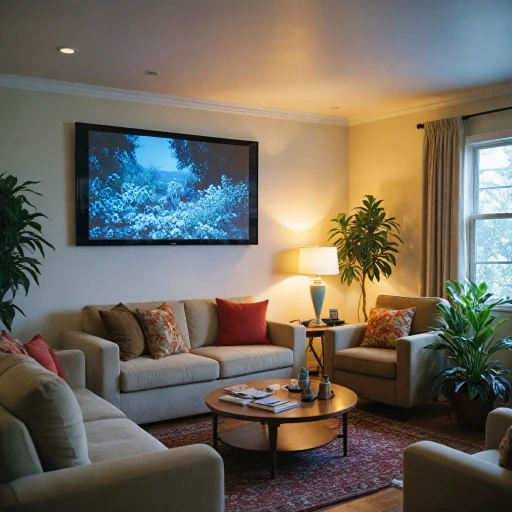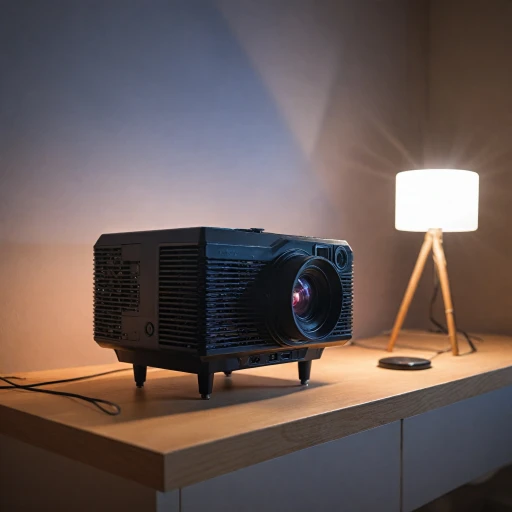
Understanding the Basics
Key Differences to Understand
When deciding between a projector and a smart TV for your home theater setup, it's crucial to understand the fundamental differences between them. Projectors and smart TVs both aim to provide an immersive viewing experience but achieve this in distinct ways. Firstly, consider the technology behind each option. Projectors, particularly laser projectors and ultra short throw models, offer a potentially huge screen size, limited only by your wall space. They're perfect for those who dream of a big screen experience right in their living room. In contrast, TVs are capped by their physical size and are better suited for smaller spaces. Another aspect is image quality. While the best smart TVs flaunt incredible picture quality, modern projectors have closed the gap significantly, delivering crisp, high-resolution images. However, projectors can be sensitive to ambient light which might affect the viewing experience, while TVs generally perform well in various lighting conditions. Projectors also provide high flexibility in setup and can transform diverse spaces like patios or even serve as a portable option for events. For those interested in exploring unique uses, you might find insights in this drive-in theater experience. Both projectors and TVs have their merits and the right choice often boils down to your specific needs and circumstances, including cost factors, smart features, and the overall cinematic experience you aim for in your home theater.Picture Quality and Resolution
Evaluating Image Clarity and Detail
When it comes to creating a home theater, picture quality is a top priority. Projectors and smart TVs both offer impressive image quality, but they achieve it in different ways. Projectors, especially those with laser technology, can deliver a cinematic experience with a big screen size that smart TVs often can't match. The best projectors provide sharp image quality, even in large formats, which is ideal for a theater-like setup.
Resolution and Brightness
Resolution is a key factor in determining picture quality. While 4K resolution is becoming standard for both projectors and TVs, the way each handles brightness and ambient light can affect your viewing experience. Projectors, particularly laser projectors, offer high brightness levels, making them suitable for rooms with some ambient light. However, to achieve the best results, controlling light exposure is crucial. Smart TVs, on the other hand, often have better brightness control, making them a good choice for rooms with more light.
Impact on Eye Health
Another consideration is the impact of blue light on eye health. Projectors typically emit less blue light compared to TVs, which can be beneficial for prolonged viewing sessions. This low blue light exposure can make projectors a better option for those concerned about eye strain.
Choosing the Right Option
Ultimately, the choice between a projector and a smart TV for your home theater will depend on your specific needs and setup. If you're aiming for a large, immersive screen size and a true theater experience, a projector might be the way to go. For more information on selecting the right projector for your needs, you can explore this guide on choosing the right projector.
Space and Installation Considerations
Space Dynamics and Setup Flexibility
When deliberating between a projector or a smart TV for your home theater, considering the available space is crucial. Projectors offer a more flexible experience, especially when considering screen size options. If you're aiming for that big screen, cinematic experience, a theater projector can project images far larger than most TVs, transforming your living room into your personal theater. Projector installation may seem daunting, but options like short throw and ultra short throw projectors simplify the process. These projectors allow you to place the device very close to the screen, decreasing setup squabbles and increasing versatility in smaller spaces. In contrast, TVs often necessitate dedicated wall space and are, by nature, less accommodating. It's also worth acknowledging how light conditions affect your viewing experience. Projectors cinematically shine in controlled light settings. Alternatively, ambient light can impede picture quality with less bright projectors, though advancements in laser projector technologies have enhanced their quality and usability even in less than ideal lighting conditions. TV screens tend to adapt better to bright rooms when compared to projectors due to their inherent brightness and consistent image quality. Given these considerations, determining the best option largely depends on your room setup and personal preferences. For a deeper dive into the evolution of digital projection, and how it enhances today's home theater setups, explore the evolution of digital projection.Cost and Value for Money
Cost Considerations and Value Evaluation
When determining whether a home theater projector or a Smart TV is the best investment for your entertainment setup, cost considerations play a crucial role. Understanding the balance between price and value can help you make a more informed decision without compromising your viewing experience. Home theater projectors vary widely in price, accommodating different budgets with options ranging from affordable to high-end. While the initial cost of a projector can be higher than some TVs, it's important to consider the long-term value and the features that a projector can bring to your theater setup.- Price vs. Screen Size: Projectors offer a superior screen size compared to TVs of a similar price range, giving you the advantage of a big screen experience without breaking the bank. This means you can enjoy a cinematic experience right at home, with a theater-grade image size that would cost significantly more if opting for a high-end TV.
- Cost of Installation and Setup: The installation process for both TVs and projectors affects the overall cost. Projectors might require additional investments in screens, mounts, or even professionals for the setup, particularly if you opt for a ceiling-mounted or ultra short throw setup. On the other hand, TV installation can often be more straightforward, but could demand a premium for advanced models.
- Additional Equipment and Sound: A projector setup may necessitate external speakers for adequate sound quality, while many TVs come with built-in sound systems that suffice for a regular home environment. Consider the extra expenses for a complete audio setup when planning your budget for projectors.
- Technology and Longevity: Laser projectors, for instance, come with a higher initial price but offer longer lifespans and decreased maintenance costs compared to bulb projectors. Evaluating whether a laser option might offer better value depends on how often you’ll use your home theater system and the importance of low blue light exposure for your eye health.
Smart Features and Connectivity
Embracing the Connectivity Edge
Smart technologies are reshaping our entertainment spaces, and when it comes to creating a home theater, both projectors and smart TVs offer distinct advantages. Opting for a smart projector allows you to unlock a truly cinematic experience by integrating modern features like built-in streaming services, eliminating the need for additional gadgets. A notable benefit of smart projectors is their seamless connectivity options. With these projectors, you'll experience a better setup as you can wirelessly connect your devices, minimizing clutter from excess cables. Moreover, they often support a range of inputs, so you're not limited to HDMI alone, enhancing the overall viewing experience. Another point to consider is the way modern projectors handle blue light emissions. Compared to traditional TVs, some projectors, particularly those using laser technology, are engineered to lower blue light exposure, promoting better eye health during long viewing sessions. If you're concerned about image quality and brightness, consider that advancements in short throw projectors and ultra short throw laser projectors provide superior picture quality, even in spaces with ambient light. This flexibility ensures that the room's light conditions won't hinder your enjoyment. Ultimately, a smart projector might be the best choice for those who prioritize a roomy, versatile setup with expansive screen size and a cinematic feel. Ensure your choice reflects both the advanced features you need and the price point that's reasonable for your space. In the end, the decision is about which technology aligns better with your lifestyle, offering the optimal blend of sound, image quality, and connectivity to enhance your home theater.User Experience and Versatility
Enhancing the Viewing Experience: A Balancing Act
When it comes to user experience and versatility, the choice between projectors and TVs for your home theater can significantly impact your enjoyment. Here are some considerations to help guide your decision:
- Image Quality: A theater projector can provide a truly immersive cinematic experience with a display size that TVs often can't match. However, to achieve the best image quality, consider the projector's brightness and resolution capabilities. Laser projectors tend to offer better brightness levels, which is essential for viewing in ambient light conditions.
- Screen Size and Setup: Projectors shine when it comes to big screen potential. They offer flexibility in screen size, allowing you to adjust based on your room’s dimensions. While ultra short throw projectors can be placed close to the screen, traditional projectors may require more space for the optimal setup.
- Sound and Light: While TVs may have integrated sound systems, investing in a good sound system with your projector setup will enhance your home theater experience. Additionally, consider the type of light exposure in your room, as a projector might need a controlled environment for the best picture quality. Low blue light settings found in some projectors help minimize eye fatigue, contributing to better eye health.
- Smart Features and Connectivity: Smart projectors often come with integrated streaming services and connectivity options that rival smart TVs. Ensure your device supports necessary formats and has user-friendly navigation for seamless content access.
- Price and Quality: For many, price is a crucial factor. While there are projectors available across various price points, it's essential to ensure that the model you choose does not compromise on quality for essential features. Evaluating the cost in conjunction with the other factors ensures good value for money.
In summary, the choice between a projector and a TV hinges on your specific needs and environment. Both options offer unique benefits that can deliver a satisfying, immersive viewing experience in your home theater setup.

